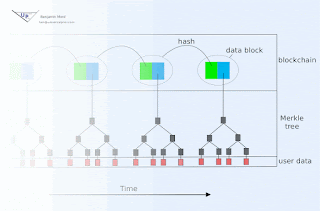The price of one BTC in the US is around $7,400 USD, but the price in Zimbabwe is reportedly $13,500 "USD", as tanks enter the capital. Yet BTC is a global currency. What gives? The "USD" price has been higher for some time also, this is not a new phenomenon.
The way fractional reserve banking works, when we pay someone in "USD", we are usually not giving them central bank USD. Usually, we are giving them the private liability of this or that bank. If I pay a merchant with a Chase debit card for example, then in exchange for my coffee I am giving them an IOU from Chase. When we say I gave them USD, we lie. US banks have been stable enough for recent memory that we have the luxury of ignoring that distinction here in the US.
But in Zimbabwe, this distinction is critical. An IOU from a bank in Zimbabwe that is denominated in a fiat currency that their government cannot print is far less valuable. I think this is the bulk of what has been happening. More recently as desperation rises, there may be a secondary effect where friction of using different exchanges or of other arbitrage mechanisms prevents arbitrage from keeping up with demand, but I expect that became a significant contributor only very recently.
So it is inaccurate to say that 1 BTC in Zimbabwe costs $13,500. It would be more accurate to say $1 of US bank liability is worth about $1.8 of Zimbabwe bank liability, due to the different risks of default. It is not the BTC whose value differs, rather it is the two different kinds of "USD". This is because BTC has no counterparty risk (IF you hold your own private keys), but practical "USD" transactions do. We seldom trade USD dollars, we trade USD debt.


Is a $1 cash note considered USD?
ReplyDeleteYes, paper cash is the only way most people can actually hold central bank money, so that is as true a USD as you have. At one point I heard the street price for BTC in Zimbabwe was roughly the same as in the US, despite the exchange price being far higher - and my guess is this is because the 'street' price was what you could get if you handed literal USD cash to someone on the street, whereas the exchange probably has to accept 'USD' in the form of local bank liability. There are some proposals for central bankers to issue cryptocurrency directly to consumers, which would make it more practical to hold significant amounts of true central bank liability. There have been proposals in the past for central banks to allow regular consumers to open bank accounts directly with them, in which case deposits in those accounts would also have been true central bank liability - however, I'm not aware of any countries having actually done this.
Delete